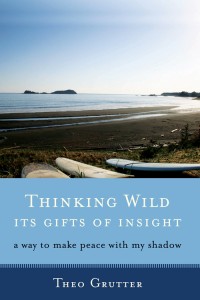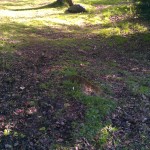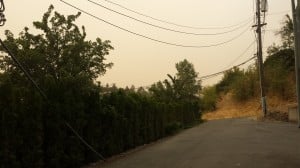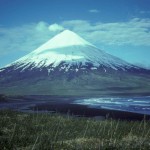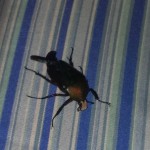Theo Grutter is man who likes to think creatively. He is a man who seeks to find the truth of every moment, every place, every interaction. He approaches each interaction with any thing – the sea, a bird, wild grass, his wife, etc – as a direct and intimate encounter. To my ears, he sounds as though he would be an amazing dinner guest, weaving stories, listening deeply, offering off-beat insights from his long life at sea, both in Sitka, Alaska and San Blas, Mexico.
I had hoped for more specifics from his life in Sitka. Sitka is a beautiful town in my homeland of SE Alaska. But specifics of place don’t seem to be the point of this book. It is the ramblings and musings and sweet old man’s mind that fill the pages of this book.
Unfortunately, when I pick up a 304 page book I do not want dinner party ramblings of man with English as his second language.
Many people will take delight in Grutter’s unconventional style. It is conversational, and I think it is because English is not his native tongue that his curious and creative use of metaphor allows fresh insight into topics that many readers of this blog will likely have considered before. However, the metaphors are often mixed or don’t quite make sense. The entire book is in dire need of editing, both for clarity and for length.
For example:
My deeper mind is born a lush Amazon with a mind-boggling wealth of capacities and designs. Millions of plug-ins are waiting for connectors. Millions of seed ideas in the making not yet ready to sprout. Billions of simultaneous happenings occurring in each soul. Yet only a completely uncommitted man, with no speck of scheming on his mirror, remains naked enough to absorb more than a spoonful of this ocean of informers. No wonder that a child while not yet tamed, trained and focused, is such a vulnerable ecstasy. Ask an elephant trainer. Training is not about learning. It is mostly about forgetting. Ask a lush river trained to become all hydropower. It must forget most of its river and riverbank population, when it is forced to squeeze through a channel and is degraded to a wallet full of kilowatt-hours. To know how green and rich my mindscape has remained, I count the plants and the animals that today have shown up in my mind.
In spite of many paragraphs resembling the one above, there are some gems in this book. In a section on ‘Listening and Seeking’ Grutter says, “Did you realize that listening is becoming an endangered act of love?” I really loved the following sentence: “How can I love the wildness of Life, if I cannot jump the garden fence around my domesticated mind and get a taste of the wild thinking outside?” There are many ideas here concerning how we loose our wild thinking through formal education, through electronic media, disconnecting with the land and each other, and through the colonization of our minds with language. These are ideas worthy of considering.
If this writing style and these ideas appeal to you, this might be a lovely book to pick up and put down as you will. There is no narrative nor any sense of linear progression. However, I suspect that most people will only get a few chapters in before putting it down and forgetting about it.

